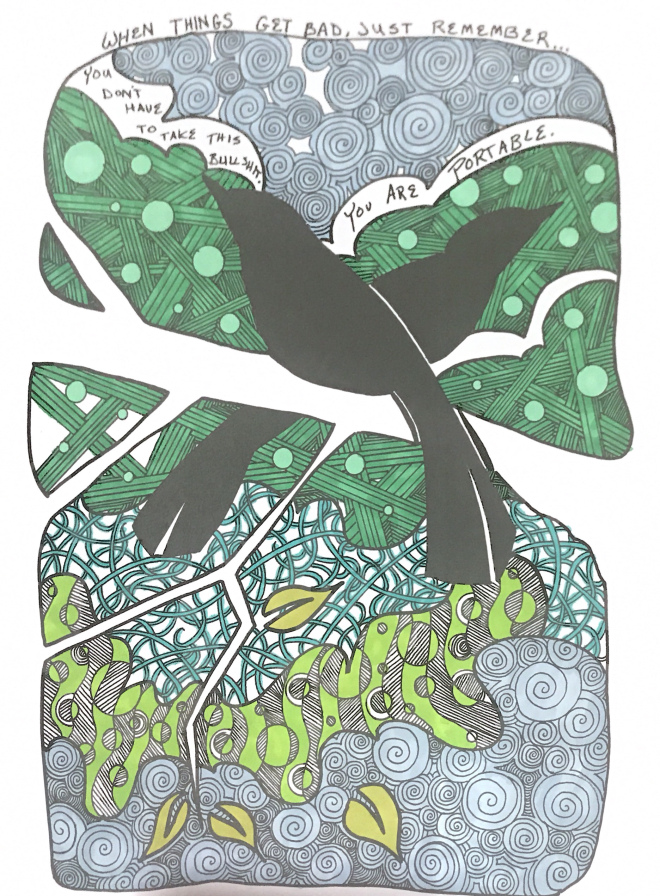The latest season of Stranger Things, Netflix’s nostalgic 1980’s-set adventure, took an interesting left turn toward the end of its run. The second season had built on the first, continuing the story of a group of teenagers in Hawkins, Indiana, 1984, after they uncovered a conspiracy of government scientists awakening psionic powers within innocent children, with the express means of opening a doorway into the ‘Upside Down’, a dark, demonic reflection of our world. Arguably the breakout star was Millie Bobby Brown as Eleven, an androgynous young girl raised by an amoral scientist she named ‘Papa’, before escaping and being taken in by teenager Mike and his party of 80’s geeks.
The Goonies meets The X-Files, right? That and about a dozen other touchstones, from Spielberg’s E.T. through to Stephen King’s Carrie. Eleven proved to be the character who leapt into the popular consciousness with a measure of innocent vulnerability and youthful verve, and it makes sense for creators The Duffer Brothers to give Eleven her own character journey across the second run, in far more of a pointed way than the rest of the ensemble. It’s through Eleven that we find an interesting narrative choice played out by the creators in the second to last episode.
Stranger Things season two operates in a logical manner, developing character arcs for the group – Dustin adopting a monstrous pet, Lucas’ teenage adoration for tomboy and new team member Max, Steve breaking out as the star of the second season, moving from popular jackass to true, underdog hero. So by the time we reach the end of the sixth episode, ‘The Spy’, the scene has very much been set for an epic climax to the story; Will is possessed by the ‘Mind Flayer’ shadow monster, Eleven discovers the truth about her mother and family past, and Hopper sees the government lab in Hawkins being to be invaded by legions of ‘Demi-gorgons’, the monster lap dogs of the Mind Flayer essentially. The first season had eight episodes yet season two has nine, simply for the fact the two-part climactic beat is forestalled in order to squeeze in an episode not originally part of the season tapestry – episode seven, ‘The Lost Sister’.
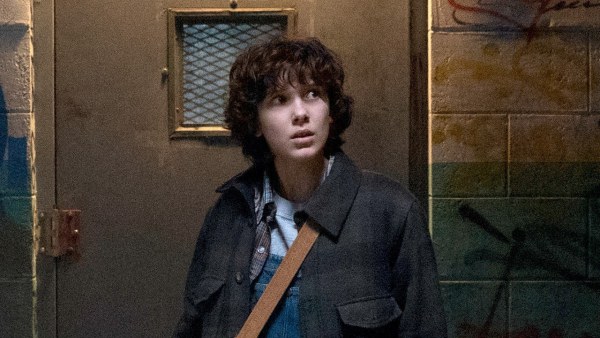
Much as overall Stranger Things sophomore year has been very well received by fans and critics like, you only have to look at the aggregated IMDB Score for ‘The Lost Sister’–which plunges from a standard 8-9 point average down to 6.2–to see how poorly many people responded to an episode which took a sharp left turn away from the expected finale in order to tell a very different story, both narratively and textually. ‘The Lost Sister’ entirely squares the focus on Eleven after the revelations at the end of ‘The Spy’, taking her on her own journey entirely separate from the action in Hawkins as she encounters Kali aka Eight, one of the original group of children experimented upon to tap into latest psychic powers by a CIA funded secret project. Kali is briefly introduced in an energetic car chase in Pittsburgh in the season premiere, without any context, and only reappears when Eleven seeks her out in ‘The Lost Sister’. Eleven treads a potentially dark path with Kali and her Lost Boys-esque troop of edgy 80’s teens, robbing banks and generally getting up to no good, before realising Hawkins is where the heart is and she has to return to help save her friends and surrogate family.
The Duffer Brothers have discussed how this episode wasn’t part of the original season arc, and was devised after Eleven’s story “fell off a cliff” before they could reunite her with the rest of the cast to help defeat the Mind Flayer. They essentially created an entire extra episode to tell a story that, in their eyes, added important context to the climax of the season. Many fans took against the episode as being a pointless diversion from the power of the main story, descending into a cliched take on the X-Men. It’s a fair argument; Kali has that awkward semi-British accent and EMO characteristics which you’ll have seen in half a dozen teen action movies and TV series, and ‘The Lost Sister’ as an episode desperately detached you from the tension of a swift and propulsive main story.
It probably isn’t great TV but it could turn out to be crucial to Stranger Things, from a character perspective. Calling it pointless may be missing the point; separate it may be from the primary narrative but the journey Eleven undertakes, tapping into greater destructive power and finding a sense of agency, ends up weaving into the climactic moments of season finale ‘The Gate’. The episode may seem jarring and misplaced, but the season overall could well have collapsed at the final hurdle without it.
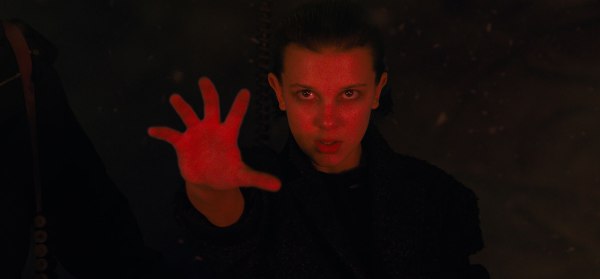
Other popular series have done this over the years – chosen to detach briefly from the main narrative in order to tell a contextual, often divisive story that will serve that ultimate storytelling master: payoff. A major example is Lost, ABC’s infamous science-fiction drama about plane crash survivors on a mysterious unknown island. In the final sixth season, building up to a mythological conflict between the forces of light and darkness actualised through the surviving plane crash survivors, the series followed up exciting episode ‘The Candidate’–in which three long standing regular characters were killed off leaving a huge cliffhanger to set up the final act–with ‘Across the Sea’, an episode which took Lost‘s concept of the flashback, peering into the back stories of the characters to provide context or narrative touches, to the ultimate degree.
Set two thousand years before the events on the island, ‘Across the Sea’ told the backstory of quasi-God figure Jacob and his devilish equal, known only as the Man in Black. It was thematic, deeply mythological, filled with revelations that led only to more questions (one character literally tells another one this in show) and ended up being powerfully divisive. Some loved the fact it told such a different, strange story, many more hated the fact the backstory was even told, not even how it stalled the climactic episodes of the entire series.
When you look back on Lost, however, ‘Across the Sea’ feels like a chapter that needed to be told come the final reckoning. Sure, plot elements and clarifications that carry over into series finale ‘The End’–such as quite how Jacob’s mystical, immortal power is transferred from one Island gatekeeper to the other–could have been weaved into the narrative differently, but stopping for breath to understand the history of the two grand chess masters of the entire, labyrinthian mythology of Lost not only feels necessary for the larger payoff, but feels *earned*.
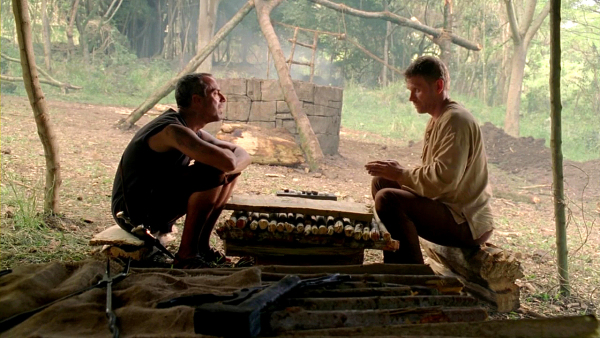
Lost was a show, unlike Stranger Things, where people spent over five years theorising in complex, remarkable detail about what the compelling mysteries which drove the series were about, but the answers were never the point when it came to Lost. Despite what people may suggest, Lost was always about character first, about how a group of disparate people went, in their own way, from ‘lost’ to ‘found’. ‘Across the Sea’ may have dealt with a range of some of the show’s most key enigmas–the Frozen Donkey Wheel, the origin of Jacob and the Smoke Monster–but at its heart it was ultimately the story about two brothers manipulated by their mother onto two very different paths, ultimately representing two aspects of life – light and dark. It was entirely a character story built around a mythological point of revelation.
Almost certainly, without it, Lost‘s payoff in ‘The End’ would have (pun intended) lost something. A hugely divisive ending as it stood, Lost benefited from a final pause for breath in the modern day storyline in order to gain added context to the mysteries and conclusions we were given at the very end. Payoff is what these examples are all about. Endings have become as important for television series as beginnings in this modern age of storytelling. Many creators go into a project with one eye on the final act, even if the tent poles they place to get there ebb and flow. That certainly happened with Lost and it’s certainly happening with Stranger Things.
’The Lost Sister’ itself is a reaction to the power of Eleven as a character within that show, how she broke out from the ensemble as the standout player. Could you imagine the show pausing for breath to do a Nancy episode? A show all about Will or even some of the stronger characters like Dustin or now Steve? That perhaps would feel even more jarring than a time out to get Eleven not just from A to B, but perfectly in place to deliver a final episode to the season which works in context. Though a recent episode of Star Trek: Discovery claimed ‘context is for kings’, it’s crucial to the final act for any show which builds itself on character journeys as well as mysterious or mythological narratives.
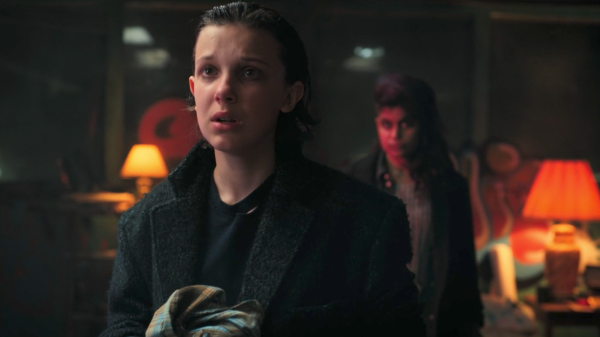
Though Lost couldn’t be more different from Stranger Things week by week, they both share a level of DNA simply in how they adopt these kind of elements to tell their story; where Lost had Biblical allegories and a host of Buddhist philosophy churning underneath, Stranger Things has an undulating occult homage to Lovecraftian mythology, with its towering, Old God beasts in a dark land serving as metaphor for the corruption of innocent children in a society where citizens are to be used, discarded and abused.
Don’t, therefore, completely write off ‘The Lost Sister’ as a piece of television. Though not without its problems on a narrative and character level, and arguably it sticks out thematically and in terms of consistent storytelling in the season, it works hard to add that necessary context which allows the season finale to work on almost every level. Ongoing, serialised storytelling sometimes deserves these affectations, these creative experiments and flights of fancy, as the writers and creators play the long game. For Lost, it added a mythological footprint which serves the final act. For Stranger Things, it allows the show’s most popular, signature character a key point of development in order to give its second season the flourish and punch it deserved.
Sometimes even if we feel we’ve taken a left turn, it doesn’t always mean the destination is any less effectively reached.
Advertisements Share this: